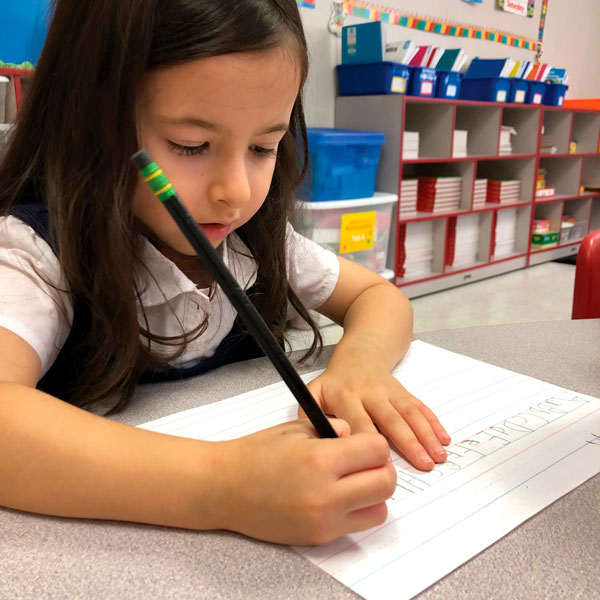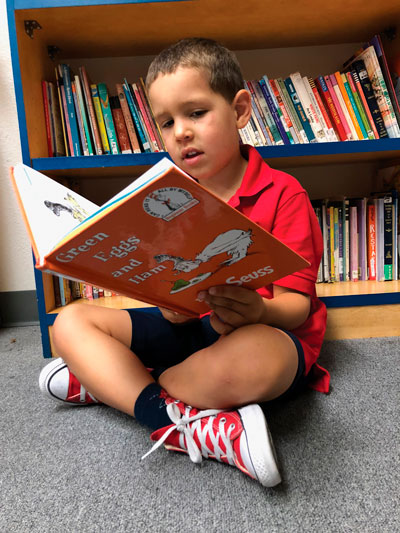Some of my fondest childhood memories include not only going with my family to the beach, picnicking by the river, or visiting museums and parks, but what we did upon our return from these excursions. My father was a poet and a professor, and upon our return from those enjoyable outings, he would write poems about our fun experiences.
The day after the trip, he would gather the family and recite to our delight the poems he would write. My siblings and I would be inspired by his simple, rhythmic poetry, and we too would attempt to write similar poems describing the common experiences we shared and how we felt about those events on the beach, by the river, or at the park.
Of course, we were preschoolers then, and too young to write, but we did write. We drew pictures and scribbled on the papers. We tried to write words by using letters for sounds to narrate our stories.
Now, years later, as an educator, I wholeheartedly promote a similar approach for laying the foundation of early literacy for young children. The foundation for early literacy is laid much before the formal schooling. A critical component of early literacy is early writing.
Research indicates that a good early childhood program must include an effective preschool curriculum, the use of best practices, and an ongoing professional development program. Important to early literacy is creating a writing environment that is developmentally appropriate, intentional, enjoyable, and conducive to writing. Instructional framework for teaching early literacy in writing can be used at the preschool, early elementary grades, and at home by parents.
Kissel (2008), in researching early writing literacy in early childhood programs, identifies five necessary components. First, helping children gather information from their experiences to generate ideas for writing. The teacher can promote a common or shared experience by discussing a particular field trip, a read-aloud book, or an exciting activity that will create enthusiasm for writing. If students make personal connections with these events, then they are more apt to write about them.
Second, the teacher, or the parent, must demonstrate the process of writing that writers can use when composing text. The teacher interactively composes a piece of text by soliciting input from the students. The teacher discusses the strategies used when creating the text to demonstrate how students themselves can apply such strategies. In a preschool program, the teacher uses printed drawings at the start of the year. Gradually, the teacher includes letters and beginning sounds as knowledge of the letters and corresponding sounds increase.
Third, the writing environment should be conducive to generating plenty of ideas for writing. One way is to provide opportunities to share ideas with other students. Students are encouraged to use oral language to discuss with each other their experiences and goals for writing. The teacher encourages an appropriate early literacy environment that helps in scaffolding students’ writing through social interactions.
Fourth, the adult must schedule a block of time for children to write. The teacher may give feedback to a few students at a time to hone their writing skills. To keep the students motivated to write, children must have choices in selecting the topics they write and the genre they use. The fifth and final component of early writing literacy is to provide a culminating experience to share students’ writing with the class. They can use the author’s chair and share their writing, and obtain valuable feedback. They also learn that there is a value behind their writing, a message they are sending.
I reflect upon the gift my father gave us; the gift of short simple verses to motivate us to write and develop a love for reading. My father, perhaps intentionally, provided us with the early writing literacy experience by using shared experiences and meaningful knowledge gained from those fun family picnics and trips to the parks. He modeled the writing process by using simple, rhythmic, poetic form to describe events and emotions. He encouraged us to discuss our experiences and ideas with other family members and provided a platform to share our craft.
As Kissel says, “The goal to introducing young children to writing is to create writers for life — not to create a life where children hate writing.”
In its commitment to continuously enrich the quality of early childhood programs, Self Development Academy will be offering a series of mini-workshops for parents and educators in early reading literacy, early writing literacy, and early mathematics literacy. Self Development Academy will be announcing the schedule of the workshops via its Facebook and website.
For more information, please call Self Development Academy or Self Development Preschool at (480) 641-2640 or visit their website: selfdevelopmentacademy.com




